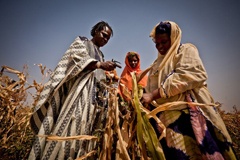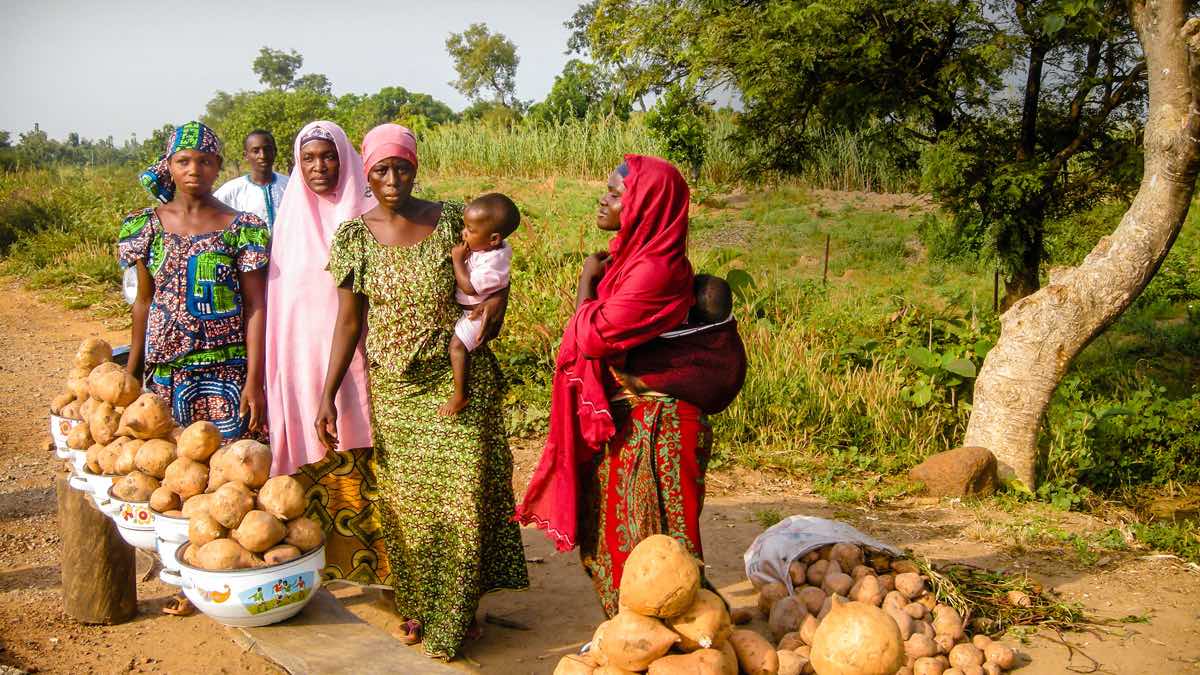The following is an excerpt of a story originally published on the CGIAR Research Program on Climate Change, Agriculture and Food Security (CCAFS) website.
The good and the bad will not balance each other out. We need to prepare for the ugly.
It’s not often you hear the words good and climate change in one sentence. But some areas of Africa will actually become better for agriculture if climate change trends continue as expected. Of course, the key word in that sentence is some. Others will become worse.
One might think that the good and the bad will balance each other out. Not so, according to Timothy Thomas of the International Food Policy Research Institute (IFPRI). The good and the bad will create the ugly.
What are your options?
Imagine you are a farmer. You have always grown maize, your parents and grandparents before them grew maize. Gradually and then suddenly, you cannot grow maize anymore. What are you going to do?
Thomas foresees two options. One: you adapt. You find crops better suited to the new climate you find yourself in and learn how to farm them. Of course, these crops will require a significant investment of both time and money and might take years to come good. Two: you move. Maybe you abandon the countryside and migrate to urban areas looking for paid employment. Maybe you move to one of those areas where agriculture has benefited from climate change. Either way, there is potential for things to get ugly.
Internal migration as a result of climate change
There is an oft cited fact that migration as a result of climate change could figure anywhere between 150 million to 2 billion. What you don’t hear in the media quite so often is the fact that there will be as much internal migration within a country, as there will be external. This puts enormous pressure on national policy-makers to plan for and manage this migration.
This is one of the reasons, the CGIAR Research Program on Climate Change, Agriculture and Food Security (CCAFS) recently teamed up with IFPRI to present the Climate Change in Africa series at the Global Landscapes Forum (GLF). For the first time ever, the series identifies how climate change is expected to impact crop yields across Africa, broken down by country and key areas within countries.
Through the reports, policy-makers can look at which areas will suffer under climate change and help prepare residents by introducing new viable crop species before old crop species fail. They can also look at which areas will benefit and make sure proper policies are developed to prevent land grabs and ensure that any development there is equitable and climate-smart.
The point is that policy-makers need to prepare. And the path forward may not be clear. The IFPRI reports used four different models to map future crop yields, and those models don’t always agree.
Yet we need to act fast, despite all the uncertainties. We don’t have time to wait for the models to agree. That might not happen until after the fact. “If we do not intervene now, climate change impacts will accelerate”, said Thomas.
What to do when models don’t agree?
“You prepare for all outcomes”, said Thomas.
Vivian Atakos is a Communication Specialist for CCAFS East Africa. Lucy Holt works with communications for the CCAFS Coordinating Unit.







